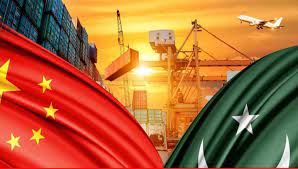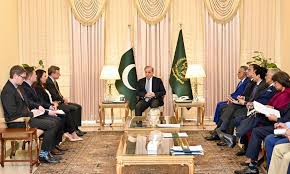New fiscal year: Pakistan allocates Rs 87 billion for CPEC projects

Islamabad: Pakistan is constructing development projects worth Rs 530 billion in Gwadar and will spend Rs 87 billion on the China-Pakistan Economic Corridor (CPEC) projects in the fiscal year 2021-2022 starting on July 1, Federal Minister for Planning, Development and Special Initiatives Asad Umar has announced.
Speaking at a joint news conference here with CPEC Authority chief Lt. General Asim Saleem Bajwa (retd), Umar said the national development budget for the next financial year has been set at Rs 2102 billion, which is 36.4% higher than the current financial year, ending on June 30.
Speaking about the China-Pakistan Economic Corridor (CPEC) and its related projects, the minister said that the government has set aside Rs 87 billion for the purpose. Rs 42 billion had been kept for the CPEC western route alone from the allocation and Rs 7 billion for the CPEC Special Economic Zones (SEZS).
Umar said the allocation will be for 40 percent for energy, transport and communication, 10 percent for water projects, 31 percent for social and regional equalization, 5 percent for production, science and Technology and 7 percent for Viability Gap Funding.
He said Rs 244 billion were being allocated for infrastructure motorways, highways, interprovincial roads, airport and Railways projects. He said that 3261 kilometers length of new roads will be added to the network.
He said 14 high-impact public-private partnership based projects worth 978 billion rupees are expected to be completed till October this year.
He said the government is giving special attention to improve agricultural and industrial productions which are very imperative for economic improvement. He said that investment has been made on building large dams and water conservation system as per commitment under National Water Policy.
Asad Umar said that Rs 84.5 billion will be allocated for construction of Diamer-Bhasha, Mohmand and Dasu Dams. He said the special focus is being made on projects in backward areas of the country.
He said the government is also tackling the global warming and climate change issue with an integrated strategy which is being acknowledged and appreciated internationally.
The Minister said that the government is also fusing allocation in social sector. He said 44 billion rupees will be allocated for Higher Education and 105 universities to be benefited from 120 projects, while 5 billion will be provided for 6000 scholarships under Scholarship Scheme.
He said Special packages are being provided under PSDP for Southern Balochistan, Karachi Transformation Plan, Socio-Economic Development of Gilgit Baltistan, Sindh Development Plan for 14 plus priority districts and enhanced allocation for newly merged districts erstwhile Federally Administrated Tribal Areas (FATA).
To a question, Asad Umar said that Rs 125 billion will be provided to the Sindh province under different programs.
Chairman CPEC Authority Asim Saleem Bajwa, on the occasion, briefed about projects under CPEC. He said the road network connecting Gwadar to Khuzdar will be completed by October or November,.
Bajwa remarked that the M8 motorway which connects Turbat to Khushab has been completed. “No work has, however, been done on the 425 kilometre-long road from Awaran to Khuzdar,” he added.
He said work on 106-kilometre patch of the N85 motorway was currently underway and it will be completed soon. This will then connect the motorway to Khushab. It will become operational in October or November, and will connect Gwadar to Khuzdar, he said.
He remarked that it was a dream of a people there that the N40 motorway which connects Quetta to Taftan to connect to the hinterland of South Balochistan too. For them, Prime Minister Imran Khan recently broke ground on the road that will connect Naukundi to Mashkhel to Panjgur, he said.
“Our plan is to lay down the network for interconnectivity among Balochistan. Three dams are being built too,” Bajwa said.
He said the government is giving special attention to improve agricultural and industrial productions which are very imperative for economic improvement.
Bajwa said that investment has been made on building large dams and water conservation system as per commitment under National Water Policy.





